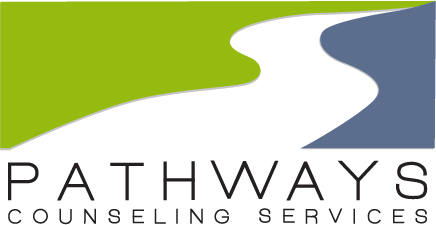Understanding ADHD: A Comprehensive Guide with Pathways Counseling Services
What is ADHD?
Attention Deficit Hyperactivity Disorder (ADHD) is a neurodevelopmental disorder that affects both children and adults. Characterized by persistent patterns of inattention, hyperactivity, and impulsivity, ADHD can significantly impact daily functioning and quality of life.
According to the Centers for Disease Control and Prevention (CDC), approximately 6 million children in the United States have been diagnosed with ADHD. However, many adults also experience symptoms that may have gone unrecognized during childhood.
Symptoms of ADHD
ADHD symptoms can vary widely among individuals but are generally categorized into two main types: inattention and hyperactivity-impulsivity.
Inattention
- Difficulty sustaining attention in tasks or play activities
- Frequent careless mistakes in schoolwork or other activities
- Trouble organizing tasks and activities
- Avoidance or dislike of tasks requiring sustained mental effort
- Losing things necessary for tasks and activities
- Forgetfulness in daily activities
Hyperactivity-Impulsivity
- Fidgeting or tapping hands or feet
- Inability to stay seated in situations where it is expected
- Running or climbing in inappropriate situations
- Talking excessively or interrupting others
- Difficulty waiting for one’s turn
It’s important to note that not every individual with ADHD will exhibit all of these symptoms. The severity and combination of symptoms can vary greatly.
Diagnosis of ADHD
The diagnosis of ADHD typically involves a comprehensive evaluation by a qualified mental health professional. This process may include:
- A detailed history of the individual’s behavior, including reports from parents and teachers for children.
- Standardized rating scales and questionnaires to assess symptoms.
- A physical examination to rule out other medical conditions.
The criteria for diagnosing ADHD are outlined in the Diagnostic and Statistical Manual of Mental Disorders (DSM-5). A diagnosis requires that symptoms are present for at least six months and are disruptive to social, academic, or occupational functioning.
The Role of Pathways Counseling Services in Diagnosis
At Pathways Counseling Services, our trained professionals utilize evidence-based practices to evaluate individuals suspected of having ADHD. We understand that each person’s experience is unique, and we tailor our approach to meet their specific needs.
Treatment Options for ADHD
Treatment for ADHD often includes a combination of behavioral therapy, medication, and lifestyle changes. Here’s a closer look at these options:
Behavioral Therapy
Cognitive-behavioral therapy (CBT) can help individuals develop coping strategies and improve organizational skills. Behavioral interventions may also involve parent training programs that teach effective management techniques.
Medication
Stimulant medications such as methylphenidate (Ritalin) and amphetamines (Adderall) are commonly prescribed for ADHD. These medications help increase attention and decrease impulsivity and hyperactivity. Non-stimulant medications like atomoxetine (Strattera) may also be used.
Lifestyle Changes
Incorporating healthy lifestyle changes can significantly improve symptoms of ADHD. Some strategies include:
- Establishing a routine to create structure in daily life.
- Engaging in regular physical activity to enhance focus and mood.
- Maintaining a balanced diet rich in omega-3 fatty acids, fruits, vegetables, and whole grains.
- Adequate sleep hygiene to ensure restorative sleep.
- Avoiding excessive screen time which can exacerbate symptoms.
The team at Pathways Counseling Services collaborates with clients to develop a personalized treatment plan that incorporates these elements for optimal management of ADHD symptoms.
Frequently Asked Questions about ADHD
1. Can adults have ADHD?
Yes! Many adults may have undiagnosed ADHD from childhood. Symptoms can manifest differently than in children but can still impact work performance and relationships.
2. Is medication necessary for treating ADHD?
No, medication is not the only option for treating ADHD. Many individuals benefit from behavioral therapies alone or in combination with lifestyle changes without medication.
3. How can I support someone with ADHD?
You can support someone with ADHD by being patient, understanding their challenges, helping them establish routines, and encouraging them to seek professional help when needed.


























